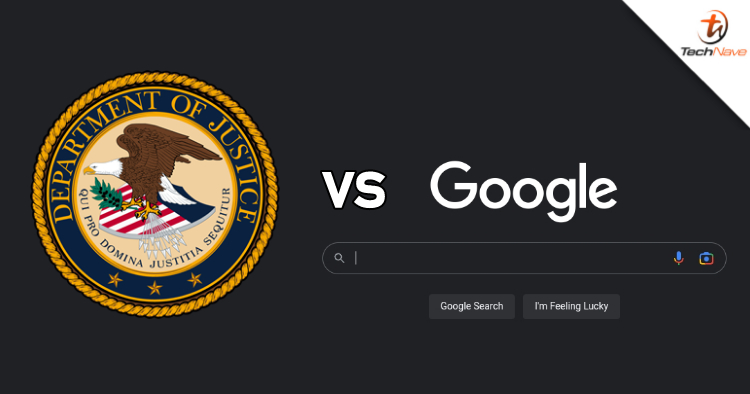Germany's New Chancellor: A Path To Renewed European Influence?

Table of Contents
Domestic Challenges and Opportunities for the New Chancellor
Navigating Domestic Politics
Germany's political landscape is characterized by coalition governments, requiring intricate negotiation and compromise. The new Chancellor faces the challenge of uniting diverse political factions within their coalition – a delicate balancing act that will directly impact their ability to enact their agenda. Key policy priorities, such as tackling climate change through the ambitious "Energiewende" and fostering economic recovery post-pandemic, will require navigating potential conflicts between coalition partners. Opposition from parties like the AfD could further hinder progress.
- Coalition Dynamics: The stability of the coalition government is paramount. Internal disagreements on crucial policy issues could weaken the Chancellor's authority and limit their effectiveness on the European stage.
- Public Opinion: The Chancellor needs strong public support to implement ambitious reforms. Negative public sentiment regarding specific policies can significantly impact their ability to exert influence both domestically and within the EU.
- Legislative Hurdles: Getting legislation passed through the Bundestag will be a constant challenge. Opposition parties may obstruct key initiatives, requiring skillful negotiation and compromise.
Economic Strength and its European Implications
Germany's robust economy plays a pivotal role in the EU. Its economic policies significantly influence other member states, both positively and negatively. A strong German economy can act as a catalyst for growth across the EU, while economic downturns in Germany can have ripple effects throughout the bloc. The new Chancellor's economic policies will determine whether Germany will be a driver of further integration or a source of potential competition.
- Eurozone Stability: Germany's economic health is crucial for the stability of the Eurozone. The Chancellor's economic policies will have significant ramifications for other Eurozone members.
- Trade and Investment: Germany's trade relations and foreign direct investment significantly impact other EU countries. The new Chancellor's approach to trade will shape economic relationships within the EU.
- Fiscal Policy: German fiscal policy choices, particularly concerning budget deficits and spending priorities, influence other member states' economic policies and the overall fiscal health of the EU.
Foreign Policy and Germany's Role in the European Union
Relationship with Other EU Powerhouses
Germany's relationship with other key EU players like France and Italy is crucial for its ability to exert influence. The potential for collaboration or competition with these countries will significantly impact the EU's overall direction. A renewed Franco-German partnership, the traditional motor of European integration, is essential for effective EU leadership.
- Franco-German Relations: The strength of the Franco-German relationship will be a significant determinant of Germany's influence within the EU. Close cooperation is vital for effective decision-making on major issues.
- Central and Eastern Europe: Germany's relationship with Central and Eastern European countries will influence its ability to navigate regional challenges and build consensus within the EU.
- EU Enlargement: Germany's stance on EU enlargement will be a key factor in determining its influence on future EU developments.
Navigating Geopolitical Challenges
Germany's role in addressing global challenges such as climate change, migration, and security is paramount. The new Chancellor's approach to these issues will shape not only Germany's foreign policy but also the EU's overall international standing. Their stance on major geopolitical players such as Russia, the USA, and China will have significant consequences.
- Russia-Ukraine Conflict: Germany's response to the conflict will determine its leadership role within the EU and its relationship with key partners.
- Transatlantic Relations: The new Chancellor's approach to the US will be critical in maintaining the transatlantic relationship and the EU's global influence.
- China Policy: Germany's strategy toward China will significantly influence the EU's overall approach to this major global power.
Public Perception and the Path to Renewed Influence
Public Opinion in Germany and Europe
Public opinion in Germany and across the EU will play a critical role in determining the new Chancellor's success. Positive public perception is essential for building trust and fostering cooperation among member states. Media coverage and public diplomacy will shape perceptions of German influence.
- Media Influence: The way the new Chancellor and their policies are portrayed in the media, both in Germany and across Europe, will significantly impact public opinion.
- Public Diplomacy: Active engagement with European publics is vital for building support for Germany's leadership role within the EU.
- Transparency and Communication: Open and honest communication is crucial for fostering trust and understanding with other EU member states and their citizens.
Building Trust and Consensus Within the EU
Building trust and consensus among EU member states is paramount for Germany to achieve renewed influence. The new Chancellor will need to take concrete steps to foster cooperation and address concerns of other member states. Reforms and new initiatives that benefit the entire EU will enhance Germany's standing.
- EU Reform: Supporting and initiating necessary reforms within the EU will demonstrate Germany's commitment to the Union's future.
- Shared Priorities: Focusing on issues of common interest and concern will help build consensus among member states.
- Inclusive Leadership: Ensuring that all voices are heard and considered is crucial for fostering cooperation within the EU.
Conclusion: Germany's New Chancellor and the Future of European Integration
The new German Chancellor faces significant challenges and opportunities in shaping Germany's role within the European Union. Success will require deft navigation of domestic political complexities, a strategically crafted foreign policy, and a concerted effort to build trust and consensus among EU member states. While the path to renewed German influence is not without obstacles, the potential for a stronger and more unified Europe under the new leadership remains significant. Continue following developments concerning Germany's new Chancellor and their impact on the future of Europe. Engage with relevant organizations and research initiatives to stay informed about this crucial juncture in European politics.

Featured Posts
-
 Nhl S Nya Stjaernturnering En Loesning Pa Konflikten
May 07, 2025
Nhl S Nya Stjaernturnering En Loesning Pa Konflikten
May 07, 2025 -
 Princess Dianas Risque Met Gala Gown A Look Back At A Bold Choice
May 07, 2025
Princess Dianas Risque Met Gala Gown A Look Back At A Bold Choice
May 07, 2025 -
 The Karate Kids Lasting Impact How Cobra Kai Continues The Story
May 07, 2025
The Karate Kids Lasting Impact How Cobra Kai Continues The Story
May 07, 2025 -
 Lotto Results Saturday April 12th Jackpot Numbers
May 07, 2025
Lotto Results Saturday April 12th Jackpot Numbers
May 07, 2025 -
 Google Faces Forced Sale Of Ad Tech Following Monopoly Ruling
May 07, 2025
Google Faces Forced Sale Of Ad Tech Following Monopoly Ruling
May 07, 2025
